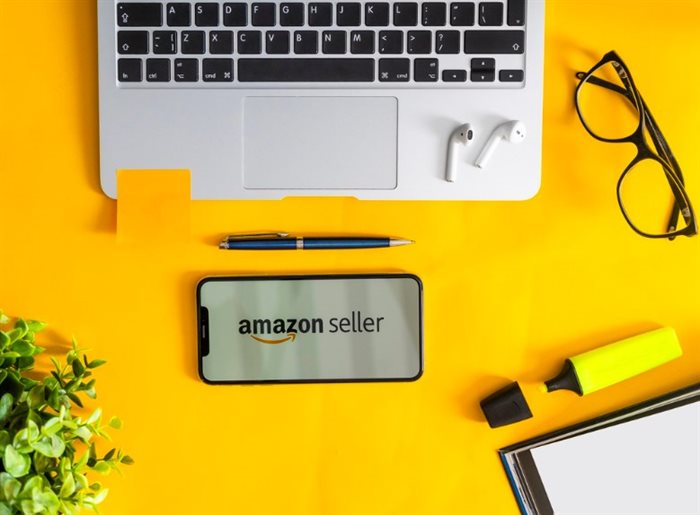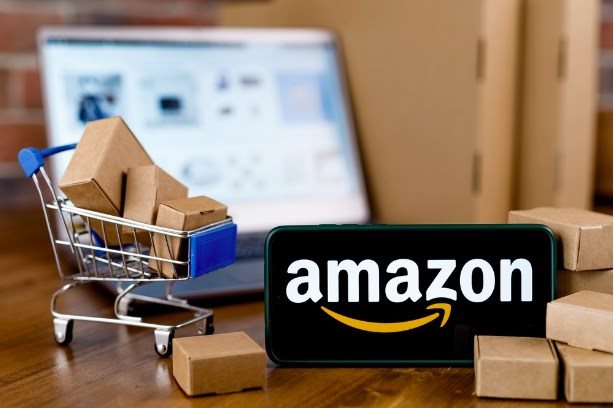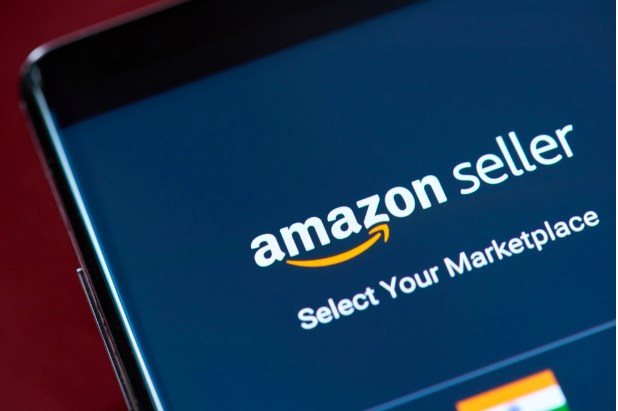Want to sell on Amazon South Africa? Think through the answers to these key questions to get started.

Credit: Gargantiopa / Shutterstock.com https://www.shutterstock.com/image-photo/sanktpetersburg-russia-april-10-2020-amazon-1705491268
Amazon has finally opened registration for South African sellers ahead of its e-commerce operations launch in 2024. With many South African businesses wanting to dive into this promising new business venture, there are plenty of reasons to jump on the bandwagon. Regarded as one of the world’s most valuable brands, there’s sound logic behind the decision of many local businesses to get their ducks in a row before registering to sell on an established multinational online marketplace like Amazon.
Even though the exact launch date for 2024 is still unclear, it is important to take note of important information to ensure you are ready to go as soon as they open up to third party sellers.
This list of eight important questions should help you get started in preparation for registering your seller account on Amazon South Africa:
#1 Where do you plan to send your Amazon order returns?
As a seller on Amazon in South Africa, it’s important to think about how customers will return your products and what will work best for your bottom line.
You have four options available:
- Liquidate: Amazon will use a number of factors to determine the average selling price of your product. Wholesale liquidators will then pay you between 5 and 10% of the product’s average selling price. This option is a way to recover some money from excess or used inventory instead of paying Amazon to return or destroy the items.
- Refurbish: Here Amazon will attempt to fix the packaging of the product if it is defective or if the buyer did not return it in its original packaging.
- Return: Request the product to be returned to your warehouse or listed address. This is a viable option if you want to assess for yourself whether the product is really unsellable.
- Dispose: Amazon will trash the product permanently in an appropriate way based on its product type. If you are part of the Amazon FBA programme, there is a possibility that your product will initially be put up for donation to an Amazon-associated charity or, if no charity is interested in it, it will be destroyed.

Credit: Sergei Elagin / Shutterstock.com https://www.shutterstock.com/image-photo/kazan-russia-oct-02-2021-amazon-2050982981
#2 Which shipping (fulfilment) method will you use?
There are numerous ways sellers can package, store and ship their products. The process of packaging, storing and sending your products to customers is known as fulfilment in Amazon lingo. You can choose only one option per product, however sellers can choose to mix and match fulfilment methods as they see fit for different products.
In a nutshell, FBA is a service that allows businesses selling on Amazon to outsource their order fulfilment to Amazon. The Amazon team will pick, pack and ship the order, taking a bit of stress off your shoulders with regard to returns and customer service.
If you opt to make use of this service, please bear the following in mind:
- You will be required to ship your products to an Amazon warehouse.
- Be aware of your pricing and shipping margins to evaluate whether this option is worthwhile for you. The fullfilment fee alone starts at R27 per unit, this varies by size of the unit. There will also be a monthly storage fee payable and for inventory that has been in the fulfillment centre for 365+ days will incur a long term storage fee. These fees are ex VAT.
Consider Amazon’s Easy Ship (EA) option
The Easy Ship programme provides a service for sellers on Amazon where packaged orders are shipped by the sellers through an associate from Amazon’s identified courier and delivered to the buyer’s location for a small fee. When sellers use the Amazon Easy Ship programme, they can be confident that their customers get a faster and more reliable delivery experience with up-to-date shipment tracking information. Amazon sellers can also choose to use the Self Ship option. This one is pretty much self explanatory and means that as a seller, you package, store and ship all your products.
#3 Will you use a DBA name?
Selecting a business name is key to help customers easily identify you in the new online marketplace. That’s what a DBA (doing business as) name is all about. You can also choose to use a different business if you are a reseller of your products. Amazon will use this to tell the customer the product is sold by ‘X business.’ Check out an example from Oculus Curae.

Credit: PixieMe / Shutterstock.com https://www.shutterstock.com/image-photo/new-york-usa-november-1-2018-1219079038
#4 Is your category of products on Amazon’s gated list?
Not all products have an easy journey through the Amazon sellers lists. Unfortunately, Amazon has a couple of restrictions on who can sell what in certain categories. Products including collectable coins, fine art, jewellery and a number of other products are part of the ‘gated’ list. Read the full list and requirements here. Businesses selling ‘gated’ products need to be aware of this issue and apply to Amazon to have them ‘ungated’.
#5 Are your GS1 barcodes ready and registered?
Every product you sell on Amazon South Africa will need to have a GS1 verified barcode/GTIN (global trade item number). This is a unique set of numbers used to identify products, often referred to as barcodes.
GS1 works to design and implement a global system of supply chains that allow products, services and information to move efficiently and securely to the benefit of the business and the consumer. Verified GS1 barcodes can be purchased here.
There is an option to apply for a GTIN exemption in the case of handmade, private label or bundled packs of more than one product. However, there is a list of products that are not eligible for exemption. To apply for an exemption, you will need to supply a product name as well as several photographs of the product showing it from various angles in its packaging.
#6 Have you thought through your pricing strategy?
Being a new business on the vast Amazon landscape can be a challenge if you have no marketing strategy or way to make your brand stand out. It is during this stage of your Amazon SA seller journey that you might need your price point to attract new customers.
Consider these pricing strategy options:
- Set your price lower than competitors to win the buy box
- Offer free shipping to encourage customers to buy from you
- Offer discounts
#7 Do you have a registered trademark?
A trademark is a word, phrase, symbol or design to distinguish your product from the crowds.
Trademark benefits include:
- Helping protect your brand and build brand awareness
- Prevention of counterfeiting, for example, others trying to sell unauthorised copies of your product that are inferior in quality. A trademark makes this action entirely illegal
- Prevents others from using a similar mark for the sale of related services or products, avoiding customer confusion
- Enables enrollment on the Amazon Brand Registry, giving you advanced brand protection and access to an exclusive set of tools to help you improve conversion, drive discoverability, and protect intellectual property.
But is having a trademark a prerequisite for selling on Amazon? No. While it is recommended, it is not necessary.
#8 What marketing agency should you partner with on your Amazon journey?
Entering a new business venture, like selling on a massive online marketplace like Amazon SA, is a big step for any business, and one you should take with your eyes wide open.
Being new to the Amazon marketplace in South Africa, you will need to put some extra effort into positioning your brand above competitors to get noticed and trusted by established and new Amazon customers.
An example of a marketing strategy for consideration is Amazon Ads, which help to increase your visibility alongside other well-established brands.
To take full advantage of the Amazon opportunity in South Africa, it could benefit you greatly to partner with an experienced digital performance marketing agency with international expertise in the Amazon space.
Ensure your chosen agency ticks the following boxes:
- A proven track record of optimising listings for clients selling a variety of products and services in a number of countries
- A local verified Amazon Ads Partner
- An agency that values transparency, offers real expertise and promises a collaborative partnership
Once you’ve checked the above questions off your to-do list, read this industry-insider onboarding checklist to ensure you’re ready to hit the ground running once Amazon launches in South Africa.
As a Verified Amazon Ads Partner and one of the first marketing agencies in South Africa offering Amazon marketing services since 2019, we’ve been helping our clients across various industries grow their businesses. If you need support in preparing for Amazon’s launch, contact Prebo Digital today: az.oc.latigidoberp@ofni.

































